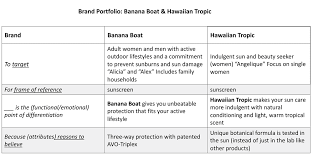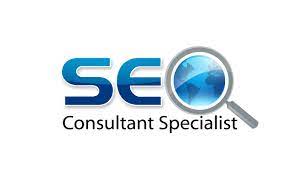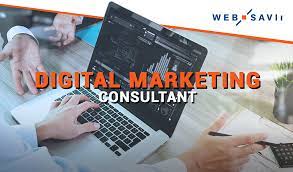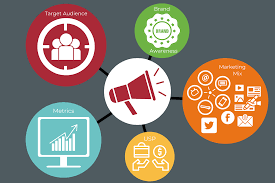Digital Marketing Consulting: Unlocking the Power of Online Success
In today’s digital age, businesses face immense competition in the online marketplace. With countless websites, social media platforms, and search engines vying for attention, it can be overwhelming for companies to navigate the complex world of digital marketing. This is where digital marketing consulting comes into play.
Digital marketing consulting is a strategic partnership between businesses and experienced professionals who specialize in leveraging online channels to achieve business goals. These consultants possess a deep understanding of the ever-changing digital landscape and employ proven strategies to help businesses thrive in this dynamic environment.
One of the key advantages of digital marketing consulting is its ability to provide tailored solutions. Every business is unique, with its own set of challenges and objectives. A skilled consultant will take the time to understand a company’s specific needs and develop a comprehensive strategy that aligns with its goals. Whether it’s increasing brand awareness, driving website traffic, or generating leads, a digital marketing consultant will create a roadmap for success.
One area where digital marketing consulting excels is in search engine optimization (SEO). SEO plays a crucial role in improving organic visibility on search engine results pages (SERPs). A skilled consultant will conduct thorough keyword research, optimize website content, and implement technical SEO best practices to boost rankings. By appearing higher on SERPs, businesses can attract more targeted traffic and increase their chances of converting visitors into customers.
Another valuable aspect of digital marketing consulting is social media management. Social media platforms have become integral to modern marketing strategies as they offer direct access to vast audiences. However, effectively managing social media accounts requires careful planning and execution. A consultant can help businesses identify the most suitable platforms for their target audience, develop engaging content strategies, and employ analytics tools to measure performance.
Digital advertising also forms an essential component of successful online campaigns. Pay-per-click (PPC) advertising allows businesses to reach their target audience through targeted ads on search engines and social media platforms. A digital marketing consultant can create and optimize PPC campaigns, ensuring maximum return on investment (ROI) by targeting the right keywords, demographics, and locations.
Furthermore, digital marketing consulting encompasses content marketing. High-quality content not only attracts and engages potential customers but also helps establish a brand as an industry authority. A consultant will develop a content strategy that aligns with a company’s target audience, creating valuable blog posts, videos, infographics, and more. This content will not only drive traffic but also build trust and credibility among consumers.
In conclusion, digital marketing consulting is an invaluable resource for businesses looking to thrive in the online marketplace. By partnering with experienced professionals who possess in-depth knowledge of digital marketing channels and strategies, companies can unlock the power of online success. From SEO and social media management to PPC advertising and content creation, a digital marketing consultant will provide tailored solutions that drive results. Embrace the opportunities offered by digital marketing consulting today to stay ahead of the competition and achieve your business goals in the ever-evolving digital landscape.
The Advantages of Digital Marketing Consulting: Expertise, Tailored Strategies, Cost-Effectiveness, Time and Resource Savings, Advanced Tools Access, and Objective Perspective
- Expertise and Industry Knowledge
- Tailored Strategies
- Cost-Effective Solutions
- Save Time and Resources
- Access to Advanced Tools
- Objective Perspective
7 Drawbacks of Digital Marketing Consulting: A UK Perspective
- Cost
- Dependency
- Lack of Control
- Communication Challenges
- Limited Industry Knowledge
- Lack of Long-Term Commitment
- Learning Curve
Expertise and Industry Knowledge
Expertise and Industry Knowledge: The Key Benefits of Digital Marketing Consulting
In the fast-paced world of digital marketing, staying ahead of the curve is essential for businesses looking to succeed online. This is where digital marketing consulting truly shines, offering a valuable advantage through the expertise and industry knowledge that consultants bring to the table.
Digital marketing consultants are specialists in their field, equipped with a deep understanding of the latest trends, tools, and strategies that drive success in the digital landscape. They invest time and effort into continuously updating their knowledge base, ensuring they are well-versed in the ever-evolving world of online marketing.
One of the primary benefits of enlisting a digital marketing consultant is gaining access to their wealth of expertise. These professionals have honed their skills through years of experience working with diverse clients across various industries. They possess an in-depth understanding of different marketing channels, platforms, and techniques that can help businesses achieve their goals effectively.
By leveraging their expertise, digital marketing consultants can provide tailored recommendations that align with a company’s specific needs and objectives. They analyze market trends, consumer behavior, and competitors to develop strategies that deliver tangible results. Whether it’s optimizing website performance, improving search engine rankings, or creating engaging content, consultants offer valuable insights backed by industry knowledge.
Furthermore, digital marketing consultants have a finger on the pulse of emerging technologies and platforms. They stay up-to-date with the latest tools and trends that can enhance a company’s online presence. By leveraging these innovations effectively, businesses can gain a competitive edge in an increasingly crowded marketplace.
Digital marketing consultants also possess a comprehensive understanding of analytics tools and metrics. They know how to interpret data accurately to measure campaign performance and identify areas for improvement. This analytical approach allows businesses to make data-driven decisions rather than relying on guesswork or intuition alone.
Another key benefit is that digital marketing consultants bring an objective perspective to the table. As external experts who are not directly involved in day-to-day operations, they can provide unbiased insights and recommendations. This outside perspective often leads to fresh ideas and innovative strategies that may not have been considered internally.
In conclusion, the expertise and industry knowledge that digital marketing consultants offer are invaluable assets for businesses seeking success in the digital realm. Their ability to stay up-to-date with the latest trends, tools, and strategies ensures that companies receive relevant and effective advice. By harnessing their expertise, businesses can navigate the complexities of online marketing with confidence, ultimately achieving their objectives and staying ahead of the competition.
Tailored Strategies
Tailored Strategies: Unlocking Success in Digital Marketing
In the vast and ever-evolving world of digital marketing, one of the key advantages of working with a digital marketing consultant is the ability to receive tailored strategies that cater to your business’s unique needs. These consultants understand that each company has its own goals, target audiences, and challenges. By diving deep into data analysis, conducting market research, and understanding consumer behavior, they can develop customized plans that maximize results.
Digital marketing consultants begin by gaining a comprehensive understanding of your business objectives. They take the time to listen to your vision, study your industry landscape, and identify your target audience. With this information in hand, they craft strategies that are specifically designed to resonate with your customers and drive meaningful engagement.
By leveraging their expertise and knowledge of various digital marketing channels, these consultants create a roadmap for success. They carefully select the most effective platforms for reaching your target audience and develop campaigns that align with their preferences and behaviors. Whether it’s search engine optimization (SEO), social media management, content creation, or paid advertising, every aspect of the strategy is tailored to meet your specific goals.
The beauty of tailored strategies lies in their ability to adapt as your business evolves. Digital marketing consultants understand that consumer preferences change over time and that technology advances at a rapid pace. They continuously monitor the performance of campaigns, analyze data insights, and make necessary adjustments to ensure optimal results.
Moreover, these consultants stay up-to-date with the latest trends and best practices in the digital marketing landscape. They bring fresh ideas and innovative approaches to the table, helping you stand out from competitors and capture attention in an increasingly crowded online marketplace.
The impact of tailored strategies can be seen through improved brand visibility, increased website traffic, higher conversion rates, and enhanced customer engagement. By aligning every aspect of your digital marketing efforts with your unique business goals and target audience preferences, you are more likely to achieve meaningful and measurable results.
In conclusion, the tailored strategies offered by digital marketing consultants are a game-changer for businesses seeking success in the digital realm. By understanding your goals, analyzing data, and staying ahead of industry trends, these consultants create customized plans that maximize your online presence and drive tangible outcomes. Embrace the power of tailored strategies today to unlock your business’s full potential in the dynamic world of digital marketing.
Cost-Effective Solutions
Cost-Effective Solutions: Unlocking the Power of Digital Marketing Consulting
In today’s digital era, businesses of all sizes recognize the importance of having a strong online presence. However, for many companies, hiring a full-time digital marketing team can be financially challenging. This is where digital marketing consulting offers a cost-effective solution that maximizes results without breaking the bank.
Engaging a digital marketing consultant provides businesses, especially small or medium-sized enterprises (SMEs), with the opportunity to access expert knowledge and experience on a project basis or through flexible contract options. Unlike hiring a full-time team, which incurs significant overhead costs such as salaries, benefits, and training expenses, working with a consultant allows businesses to benefit from their expertise without incurring long-term financial commitments.
Digital marketing consultants bring specialized skills and industry insights to the table. They stay up-to-date with the latest trends, strategies, and tools in the ever-evolving digital landscape. By tapping into their knowledge and experience, businesses can leverage cost-effective solutions tailored to their specific needs and budgetary constraints.
One of the key advantages of working with a digital marketing consultant is their ability to develop comprehensive strategies that deliver measurable results. They take the time to understand a company’s goals, target audience, and competitive landscape. This enables them to create customized plans that focus on achieving specific objectives within set budgets.
Digital marketing consultants also possess extensive networks and partnerships within the industry. This allows them to tap into additional resources when needed without burdening businesses with extra costs. Whether it’s collaborating with graphic designers for creative assets or partnering with web developers for website optimization, consultants have access to a wide range of professionals who can enhance campaign performance at reasonable rates.
Moreover, hiring a digital marketing consultant promotes flexibility in resource allocation. Businesses may not require constant support from an in-house team throughout the year. By engaging consultants on a project basis or through flexible contracts, companies can scale up or down their digital marketing efforts based on seasonal demands or changing business requirements. This ensures that resources are utilized efficiently, and budgets are optimized.
In conclusion, cost-effective solutions are a significant benefit of digital marketing consulting. By engaging a consultant, businesses can access expert knowledge and experience without the financial burden of hiring a full-time team. Consultants provide tailored strategies that deliver measurable results within budgetary constraints. Their extensive networks and partnerships also allow for additional resources at reasonable rates. Embracing digital marketing consulting as a cost-effective solution enables businesses to unlock the power of effective online marketing while maintaining financial stability and maximizing return on investment.
Save Time and Resources
Save Time and Resources with Digital Marketing Consulting
In the fast-paced world of digital marketing, time is of the essence. Implementing successful online campaigns requires not only a deep understanding of various digital channels but also the ability to adapt quickly to ever-changing trends and algorithms. This can be a daunting task for businesses that may not have the necessary expertise or resources in-house. That’s where digital marketing consulting comes in, offering a valuable solution that saves both time and resources.
One significant advantage of hiring a digital marketing consultant is the ability to tap into their specialized skills and knowledge. These professionals have dedicated their careers to staying up-to-date with the latest industry trends, best practices, and emerging technologies. By leveraging their expertise, businesses can ensure that their digital marketing efforts are effective and efficient.
By outsourcing digital marketing tasks to a consultant, companies can save valuable time. Instead of spending countless hours researching, strategizing, and implementing campaigns themselves, they can rely on experienced professionals who already possess the required skills. This allows internal teams to focus on their core competencies, such as product development or customer service, without being overwhelmed by the complexities of digital marketing.
Furthermore, hiring a consultant eliminates the need for extensive training or recruitment processes. Building an in-house team capable of delivering effective digital marketing campaigns can be costly and time-consuming. Onboarding new employees requires investing in training programs and providing ongoing support. By opting for a consultant instead, businesses can bypass these challenges and immediately benefit from their expertise.
Digital marketing consultants also bring efficiency to campaign management. They have access to tools and technologies that streamline processes such as keyword research, analytics tracking, and content creation. With their experience and resources at hand, consultants can execute campaigns more efficiently than an inexperienced team relying solely on trial-and-error approaches.
Additionally, consultants offer an objective perspective on business strategies. They bring fresh ideas based on industry insights gained from working with various clients across different sectors. This external viewpoint can help identify untapped opportunities and innovative approaches that may have been overlooked internally.
In conclusion, digital marketing consulting provides businesses with a valuable resource to save time and resources. By outsourcing digital marketing tasks to experts, companies can focus on their core competencies while benefiting from specialized skills and knowledge. With consultants handling the complexities of online campaigns, businesses can achieve greater efficiency and effectiveness in their digital marketing efforts. Embrace the benefits of digital marketing consulting to streamline your strategy, enhance your online presence, and stay ahead of the competition in today’s fast-paced digital landscape.
Access to Advanced Tools: Enhancing Digital Marketing Success
In the fast-paced world of digital marketing, staying ahead of the competition requires more than just a well-crafted strategy. It requires access to advanced tools that provide valuable insights into campaign performance. This is where digital marketing consulting shines, offering businesses the advantage of utilizing cutting-edge analytics tools.
Digital marketing consultants have the expertise and resources to leverage advanced analytics tools that delve deep into the metrics of a campaign. These tools provide valuable data on website traffic patterns, conversion rates, customer demographics, and much more. Armed with this information, consultants can identify areas for improvement and optimize strategies for better results.
One significant benefit of these advanced tools is their ability to track website traffic patterns. Consultants can analyze visitor behavior, such as which pages are most frequently visited or where visitors tend to drop off. This insight enables businesses to make data-driven decisions on website design and content optimization, ultimately improving user experience and increasing conversions.
Conversion rates are another crucial metric that analytics tools help consultants monitor closely. By understanding how different marketing channels contribute to conversions, consultants can identify which channels are performing well and which need adjustment. This information allows for targeted efforts in optimizing campaigns, ensuring maximum return on investment (ROI) by focusing resources on high-converting channels.
Customer demographics play a vital role in tailoring marketing strategies effectively. Analytics tools provide detailed insights into customer characteristics such as age, gender, location, interests, and more. Armed with this information, digital marketing consultants can create highly targeted campaigns that resonate with specific customer segments. By delivering personalized messages to the right audience at the right time, businesses can maximize engagement and drive conversions.
Furthermore, these advanced analytics tools enable consultants to measure key performance indicators (KPIs) accurately. Consultants can track metrics such as click-through rates (CTR), cost per acquisition (CPA), and return on ad spend (ROAS). With this granular data at their disposal, consultants can fine-tune marketing efforts, optimizing campaigns to achieve better results and drive business growth.
Access to advanced tools is a significant advantage of digital marketing consulting. These tools empower consultants to make data-driven decisions, uncover valuable insights, and optimize strategies for success. By leveraging analytics tools, businesses can gain a competitive edge in the digital landscape, ensuring that every marketing effort is targeted, efficient, and impactful.
In conclusion, digital marketing consulting provides businesses with access to advanced analytics tools that offer invaluable insights into campaign performance metrics. From website traffic patterns and conversion rates to customer demographics and KPIs, these tools enable consultants to optimize strategies for better results. Embracing digital marketing consulting with its arsenal of advanced tools allows businesses to stay ahead of the curve and achieve digital marketing success in an increasingly competitive landscape.
Objective Perspective
Objective Perspective: Unleashing Creativity and Innovation in Digital Marketing
In the fast-paced world of digital marketing, staying ahead of the competition requires a fresh and innovative approach. However, internal teams within businesses may sometimes struggle with biases or preconceived notions about their brand or industry, hindering their ability to think outside the box. This is where digital marketing consulting shines, providing an objective perspective that can unlock creativity and innovation.
A digital marketing consultant brings a valuable external viewpoint to the table. They have a unique vantage point that allows them to see a business’s strengths and weaknesses from an unbiased standpoint. By stepping outside of internal dynamics and preconceived notions, consultants are able to provide fresh ideas that challenge existing strategies and encourage innovative thinking.
One of the key advantages of this objective perspective is its ability to foster creativity. Internal teams may become entrenched in their established ways of thinking, limiting their ability to explore new ideas or take risks. A consultant can inject new energy into digital marketing efforts by introducing novel concepts and approaches that may have been overlooked internally. This fresh perspective can spark creative thinking among team members, leading to breakthrough ideas and campaigns that capture the attention of target audiences.
Moreover, an objective viewpoint helps identify untapped opportunities. Sometimes businesses are too close to their own operations to see potential areas for growth or improvement. A digital marketing consultant can assess a company’s current strategies, market position, and competitive landscape from an external standpoint. This enables them to identify unexplored avenues or gaps in the market that could be leveraged for success.
Another advantage is that consultants bring industry expertise gained from working with various companies across different sectors. This breadth of experience allows them to draw insights from successful campaigns in other industries and apply them creatively within a specific business context. By combining their knowledge with an objective perspective, consultants can introduce innovative strategies tailored specifically for each client.
Digital marketing consulting also acts as a catalyst for change within organizations. The introduction of fresh ideas and innovative thinking can inspire internal teams to challenge the status quo and embrace new approaches. Consultants often provide guidance on implementing these ideas, ensuring that they are effectively integrated into existing marketing efforts. This collaborative process can lead to a culture of continuous improvement, where creativity and innovation become ingrained in the company’s digital marketing practices.
In conclusion, the objective perspective offered by digital marketing consulting is a powerful tool for unleashing creativity and innovation. By providing fresh ideas based on an external viewpoint, consultants challenge biases and preconceived notions within businesses. This encourages creative thinking, identifies untapped opportunities, and fosters a culture of innovation. Embracing the expertise of a digital marketing consultant can help businesses break free from internal constraints and achieve new levels of success in their digital marketing efforts.
Cost
Cost: The Challenge of Budgeting for Digital Marketing Consulting
In the world of digital marketing, hiring a consultant can be a game-changer for businesses seeking to establish a strong online presence. However, one significant con that often arises is the cost associated with digital marketing consulting. For small businesses with limited budgets, this expense can pose a real challenge.
Digital marketing consultants bring expertise, experience, and valuable insights to the table. They can provide strategic guidance and help businesses navigate the complex landscape of online marketing. However, their fees may not always align with the financial resources available to smaller companies.
The cost of hiring a digital marketing consultant varies depending on factors such as their level of expertise, reputation, and the scope of services required. Some consultants charge hourly rates, while others offer fixed project fees or retainers. Regardless of the pricing structure, it’s important for businesses to carefully consider their budgetary constraints before committing to working with a consultant.
For small businesses with limited budgets, investing in digital marketing consulting might seem like an unaffordable luxury. Every penny counts when it comes to running a business, and allocating funds towards consultancy fees may divert resources from other crucial areas such as product development or operations.
However, it’s important to recognize that the value provided by a skilled digital marketing consultant can outweigh the initial investment. A well-executed digital marketing strategy has the potential to generate significant returns in terms of increased brand visibility, website traffic, lead generation, and ultimately sales growth.
To mitigate the financial strain associated with hiring a consultant, small businesses can explore alternative options. For example, they could consider engaging consultants on a project basis rather than committing to long-term contracts or retainer agreements. This allows them to leverage specific expertise for targeted campaigns while keeping costs under control.
Another approach is to seek out consultants who offer flexible pricing models or tailored packages designed specifically for smaller businesses. Some consultants understand the challenges faced by startups and SMBs and are willing to work within limited budgets, offering scaled-down services or providing guidance on a DIY approach to digital marketing.
Furthermore, small businesses can also explore other resources available in the digital marketing realm. There are numerous online courses, webinars, and industry blogs that provide valuable insights and tips for businesses looking to enhance their online presence. While these resources may not offer the same level of personalized guidance as a consultant, they can still provide valuable knowledge that can be applied in-house.
In conclusion, the cost of digital marketing consulting is a legitimate concern for small businesses with limited budgets. However, it’s essential to weigh this con against the potential benefits that effective digital marketing strategies can bring. By carefully considering budgetary constraints and exploring alternative options, businesses can find ways to leverage the expertise of consultants while managing costs effectively. It’s all about finding the right balance between investment and return on investment to ensure sustainable growth in the ever-evolving digital landscape.
Dependency
Dependency: The Double-Edged Sword of Digital Marketing Consulting
Digital marketing consulting undoubtedly offers numerous benefits to businesses seeking to establish a strong online presence. However, like any other service, it also has its drawbacks. One notable con is the potential dependency it can create on external expertise, which may limit a business’s ability to develop its internal digital marketing capabilities.
Engaging a digital marketing consultant can provide immediate access to specialized knowledge and skills that may be lacking within the company. This external expertise can help jumpstart digital marketing efforts and deliver quick results. Consultants bring in-depth industry knowledge, stay up-to-date with the latest trends and best practices, and possess experience across various sectors. They can offer valuable insights and recommendations tailored to a business’s specific needs.
However, this reliance on external consultants can become a double-edged sword in the long run. While businesses may benefit from the expertise brought by consultants, they risk becoming overly dependent on their services. This dependency can hinder the growth of internal capabilities and prevent businesses from fully understanding and harnessing the power of digital marketing.
By relying solely on external consultants, businesses miss out on opportunities for their own team members to develop essential skills in digital marketing. Building an internal team with digital marketing expertise allows companies to have greater control over their strategies, adapt quickly to changing market conditions, and maintain agility in their online campaigns.
Moreover, developing internal capabilities empowers businesses to take ownership of their digital marketing efforts. It enables them to align strategies closely with their unique brand identity, values, and long-term goals. Internal teams immersed in the day-to-day operations of the company are better positioned to understand customer preferences and nuances that may not be immediately apparent to external consultants.
To mitigate this con of dependency, businesses should seek a balanced approach. Instead of relying solely on external consultants indefinitely, they should view consulting as a partnership aimed at knowledge transfer and capability development within their own teams. This could involve collaborating closely with consultants, encouraging knowledge sharing, and investing in training programs to upskill existing employees.
By striking this balance, businesses can leverage the expertise of digital marketing consultants while simultaneously nurturing their internal capabilities. This approach ensures that companies have the ability to adapt and evolve their online strategies independently over time. It allows for continuous growth, innovation, and adaptation to changing market dynamics.
In conclusion, while there are undeniable benefits to engaging digital marketing consultants, businesses must be cautious about becoming overly dependent on external expertise. Balancing the use of consultants with developing internal capabilities is crucial for long-term success in the ever-evolving digital landscape. By doing so, businesses can harness the best of both worlds – leveraging external expertise while building a strong foundation of internal digital marketing capabilities.
Lack of Control
Lack of Control: Balancing Expertise and Autonomy in Digital Marketing Consulting
While digital marketing consulting offers numerous benefits, it is important to acknowledge potential drawbacks as well. One significant concern that businesses may face when outsourcing their digital marketing efforts is a perceived lack of control over their campaigns and strategies.
When working with a digital marketing consultant, businesses often rely on the expertise and experience of the consultant to guide their online marketing activities. This can be highly valuable, as consultants bring in-depth knowledge and insights into the ever-evolving digital landscape. However, this reliance on external expertise can sometimes lead to a sense of reduced control over critical decisions.
One area where this lack of control may be felt is in branding and messaging. Businesses invest considerable time and effort in developing their brand identity, unique value proposition, and desired messaging. However, when collaborating with a consultant, there may be instances where recommendations or suggestions from the consultant influence these important aspects. This can potentially dilute or deviate from the company’s original vision.
Similarly, target audience selection is another crucial decision that impacts the success of digital marketing campaigns. A business knows its customers best – their preferences, needs, and behaviours. However, when working with a consultant, there might be instances where target audience recommendations differ from what the company initially envisioned. This can create a sense of detachment or uncertainty about whether the chosen target audience truly aligns with the business’s objectives.
To address this con effectively, it is essential for businesses to foster open communication and collaboration with their digital marketing consultants. Clear lines of communication should be established from the outset to ensure that both parties understand each other’s expectations and goals.
Businesses should also actively participate in shaping their digital marketing strategies by sharing their brand guidelines, messaging preferences, and insights about their target audience. By actively engaging in discussions with consultants and providing input throughout the process, companies can maintain a sense of ownership over key decisions while benefiting from the consultant’s expertise.
Additionally, regular performance tracking and reporting can provide businesses with a tangible understanding of how their campaigns are progressing. This allows for data-driven discussions and adjustments, ensuring that the digital marketing efforts remain aligned with the company’s goals.
In conclusion, while lack of control can be a valid concern when outsourcing digital marketing efforts to consultants, it is possible to strike a balance between expertise and autonomy. By fostering open communication, active participation, and data-driven decision-making, businesses can collaborate effectively with their consultants while still maintaining control over critical aspects of their campaigns. Ultimately, it is through this collaboration that businesses can achieve successful digital marketing outcomes while staying true to their vision and objectives.
Communication Challenges
Communication Challenges in Digital Marketing Consulting: Overcoming Distance and Time Zone Differences
While digital marketing consulting offers numerous benefits, it’s essential to acknowledge that there can be potential drawbacks as well. One such challenge is the communication barrier that may arise when working with an external consultant, particularly when there are significant distances or time zone differences involved. However, with proper planning and effective communication strategies, these challenges can be overcome.
Distance and time zone differences can lead to delays in decision-making processes and hinder seamless collaboration between the consultant and the business. When faced with these challenges, it’s crucial to establish clear lines of communication from the outset. Setting expectations regarding response times and preferred modes of communication helps ensure that both parties are on the same page.
Utilizing technology plays a vital role in mitigating communication difficulties. Video conferencing tools allow face-to-face interactions regardless of physical distance, fostering a more personal connection between the consultant and the business. Regular virtual meetings can help maintain open lines of communication, provide project updates, address concerns promptly, and ensure everyone remains aligned towards achieving goals.
To overcome time zone differences, establishing overlapping working hours where both parties are available for real-time discussions is beneficial. This may require some flexibility from both sides to accommodate each other’s schedules. Additionally, leveraging project management tools or collaboration platforms enables continuous communication by providing a central hub for sharing files, feedback, and updates.
Another effective strategy is designating a primary point of contact within the business who can act as a liaison between the consultant and internal stakeholders. This individual should have a clear understanding of project objectives and possess excellent communication skills to bridge any gaps that may arise due to distance or time zone differences.
Transparency is key when dealing with communication challenges in digital marketing consulting engagements. Clearly defining roles, responsibilities, and expectations helps minimize misunderstandings and ensures that everyone involved understands their respective roles in the process. Regularly sharing progress reports or status updates keeps all parties informed and fosters a sense of accountability.
While communication challenges can arise in digital marketing consulting, they should not deter businesses from seeking external expertise. By proactively addressing these challenges through effective communication strategies, businesses can overcome distance and time zone differences to achieve successful collaboration with their consultants. Embracing technology, setting clear expectations, and maintaining open lines of communication are crucial steps towards maximizing the benefits of digital marketing consulting while minimizing potential drawbacks.
Limited Industry Knowledge
Limited Industry Knowledge: A Consideration in Digital Marketing Consulting
In the fast-paced world of digital marketing consulting, one potential drawback to keep in mind is the consultants’ limited industry knowledge. While these professionals possess a broad understanding of digital marketing strategies and tactics, they may lack deep expertise in specific niche markets or have a comprehensive understanding of the unique challenges faced by certain businesses.
Digital marketing consultants often work with clients from various sectors and industries. This breadth of experience allows them to bring fresh perspectives and innovative ideas to the table. However, it also means that their knowledge is spread thin across different domains. As a result, they may not possess the insider insights or specialized knowledge that industry-specific consultants might offer.
Understanding the intricacies of a particular industry is essential for developing highly targeted and effective digital marketing strategies. Industries have their own set of regulations, consumer behaviors, market trends, and competitive landscapes. Without an in-depth understanding of these factors, consultants may struggle to create tailored campaigns that truly resonate with target audiences.
Moreover, businesses operating in niche markets often face unique challenges that require specialized expertise. These challenges could range from complex supply chains to specific customer segments or regulatory compliance issues. A digital marketing consultant with limited industry knowledge may struggle to grasp these nuances fully and provide optimal solutions.
However, it’s important to note that this limitation can be mitigated through effective communication and collaboration between the consultant and the client. By openly sharing industry-specific insights and providing detailed information about business goals and challenges, clients can help bridge the knowledge gap for consultants.
Additionally, experienced digital marketing consultants are quick learners who adapt swiftly to new industries. They possess transferable skills such as data analysis, strategic planning, campaign management, and content creation that can be applied across different sectors. With thorough research and a willingness to learn about new industries, they can still deliver valuable results.
Ultimately, when considering digital marketing consulting services, businesses should weigh the benefits of broader digital marketing expertise against the potential limitations of limited industry knowledge. It may be beneficial to seek consultants who have experience in related industries or demonstrate a strong willingness to learn and adapt to new sectors.
By carefully selecting consultants and fostering open communication, businesses can leverage the strengths of digital marketing consulting while addressing any potential gaps in industry-specific knowledge. Together, they can develop effective strategies that align with business goals and overcome industry challenges, ensuring success in the ever-evolving digital landscape.
Lack of Long-Term Commitment
The Lack of Long-Term Commitment in Digital Marketing Consulting: A Potential Pitfall
Digital marketing consulting undoubtedly offers numerous benefits to businesses seeking to enhance their online presence. However, it is essential to acknowledge the potential downsides as well. One such drawback is the lack of long-term commitment that often accompanies the consultant-client relationship.
In many cases, digital marketing consultants are hired for specific projects or fixed periods, which can lead to a lack of continuity in strategy implementation. While consultants bring their expertise and insights to the table, their limited engagement may hinder the development of a deep understanding of the business’s intricacies and long-term goals. This lack of familiarity can result in disjointed strategies or missed opportunities for ongoing optimization.
Without a long-term commitment, businesses may find it challenging to maintain consistency in their digital marketing efforts. Strategies need time to evolve and adapt as market dynamics change. A short-term approach might not allow for continuous monitoring and adjustment, potentially hindering the effectiveness of campaigns over time.
Furthermore, building a strong brand presence and establishing meaningful connections with customers require consistent effort and nurturing. Digital marketing consultants who are only engaged for short periods may not have enough time to fully immerse themselves in a company’s brand ethos or cultivate lasting relationships with its target audience.
To mitigate this con, businesses must carefully consider their digital marketing needs and evaluate whether short-term consulting engagements align with their long-term goals. In some cases, it may be beneficial to seek consultants who offer ongoing support or consider transitioning from project-based consulting to a more extended partnership.
By fostering longer-term relationships with digital marketing consultants, businesses can benefit from greater continuity, deeper insights into their industry landscape, and enhanced collaboration between internal teams and external experts. This approach allows for better alignment of strategies with evolving business objectives while enabling ongoing optimization based on real-time data and market trends.
In conclusion, while digital marketing consulting brings valuable expertise and fresh perspectives, the lack of long-term commitment can present challenges. Businesses must carefully assess their needs and consider the advantages of establishing more extended partnerships with consultants. By doing so, they can ensure a consistent and effective digital marketing approach that aligns with their long-term goals and maximizes their online success.
Learning Curve
Learning Curve: The Drawback of Solely Relying on Digital Marketing Consultants
Digital marketing consulting undoubtedly offers numerous benefits for businesses seeking to establish a strong online presence. However, it is important to acknowledge that there are potential drawbacks to relying solely on consultants for digital marketing expertise. One significant con is the learning curve that businesses may face.
When businesses rely solely on external consultants for their digital marketing needs, they miss out on opportunities to develop their own in-house skills and knowledge base. Over time, this could limit their ability to adapt quickly to changing market trends or implement new strategies independently.
Digital marketing is a constantly evolving field, with new technologies, platforms, and tactics emerging regularly. By solely relying on consultants, businesses may become dependent on external expertise without fully understanding the underlying principles and strategies themselves. This lack of internal knowledge can hinder the company’s ability to make informed decisions and respond swiftly to market changes.
Moreover, building an in-house digital marketing team allows businesses to have direct control over their campaigns and strategies. It enables them to align their marketing efforts more closely with their overall business objectives and brand identity. By developing internal capabilities, companies can tailor their digital marketing activities precisely according to their unique needs and target audience.
Another disadvantage of relying solely on consultants is the potential financial burden it may impose on businesses. Engaging external consultants can be costly, especially if long-term contracts are involved. Over time, these expenses may accumulate significantly, affecting the overall budget allocated for digital marketing activities.
To mitigate this drawback, businesses can adopt a hybrid approach by combining the expertise of digital marketing consultants with internal training and development programs. By investing in training for existing employees or hiring skilled professionals who can work alongside consultants, companies can build a strong foundation of in-house knowledge while still benefiting from external insights.
Furthermore, fostering a culture of continuous learning within the organization allows employees to stay updated with industry trends and advancements in digital marketing practices. This ongoing development of skills and knowledge empowers businesses to adapt swiftly to market changes and take advantage of new opportunities without solely relying on external consultants.
In conclusion, while digital marketing consulting offers undeniable advantages, businesses should be mindful of the potential learning curve associated with relying solely on external expertise. By investing in building internal skills and knowledge, companies can enhance their ability to adapt quickly, implement new strategies independently, and maintain better control over their digital marketing efforts. Striking a balance between external consultation and internal development can lead to long-term success in the ever-evolving digital landscape.












